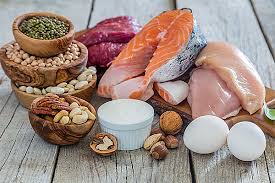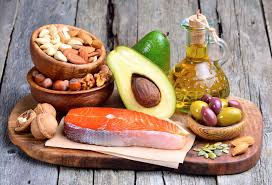Carbohydrates often get a bad reputation in diet culture, but they are essential to your health. Carbs are your body’s primary energy source, not a dietary enemy. Let’s break down what carbohydrates are, where to find them, how they affect your body, and how to choose the right ones for optimal health.
What Are Carbohydrates?
Carbohydrates are one of the three main macronutrients, along with protein and fat. Found in both plant-based and dairy foods, carbs are the body’s primary source of energy. During digestion, your body breaks down carbohydrates into glucose (a type of sugar), which enters your bloodstream to fuel cells throughout the body.
Carbohydrates come in three main forms:
- Sugars (simple carbs)
- Starches (complex carbs)
- Fiber (a complex carb your body can’t digest)
The Types of Carbohydrates Explained
1. Simple Carbohydrates (Sugars)
Simple carbohydrates are digested quickly and provide a rapid source of energy. They can be naturally occurring — such as fructose in fruit or lactose in milk — or added to processed foods like soda, candy, pastries, and sweetened cereals.
While natural sugars come packaged with vitamins and fiber which slow sugar absorption in the bloodstream, added sugars can spike blood sugar levels quickly, provide calories without nutritional value and are linked to weight gain and chronic diseases like type 2 diabetes and heart disease.
2. Complex Carbohydrates (Starches and Fiber)
Complex carbohydrates take longer to digest, providing a steadier release of energy. They’re typically found in nutrient-dense whole foods.
Starches are a major energy source for the body. They are made up of many sugar units that are digested and converted into glucose. Glucose is used by all organs in your body but is most critical in the brain as it is the preferred fuel for brain cells and supports everything from memory to decision making. Starches are found in: Grains (wheat, oats, rice, corn), Starchy vegetables (potatoes, corn), and Legumes (beans, peas, lentils).
Fiber is a type of complex carbohydrate that your body can’t digest. It supports digestive health, helps manage blood sugar, and contributes to satiety (feeling full). There are two types of fiber, soluble and insoluble.
Soluble Fiber dissolves in water and forms a gel-like substance in the digestive tract. It helps lower blood cholesterol, regulates blood sugar levels by slowing digestion and the absorption of sugar, and helps you feel fuller longer. You can find soluble fiber in oats, beans, lentils, apples, oranges, pears, carrots, barley, and psyllium.
Insoluble Fiber does not dissolve in water. It adds bulk to stool and helps food move more efficiently through the digestive system. It promotes regular bowel movements, helps prevent constipation, and supports overall digestive health. Insoluble fiber is found in whole-wheat flour, wheat bran, nuts and seeds, cauliflower, green beans, potato skins, and corn.
Experts recommend 25–30 grams of fiber per day, yet most people only get about half that.
Grain Products: Whole vs. Refined
Grains form a significant part of the carbohydrate food group. They fall into two categories:
Whole Grains
Whole grains contain all parts of the grain kernel (bran, germ, and endosperm) and retain their fiber and nutrients.
Examples:
- Brown rice
- Oatmeal
- Whole-wheat bread and pasta
- Bulgur (cracked wheat)
Whole grains support heart health, reduce the risk of type 2 diabetes, and may help with weight management. To ensure you’re getting fiber, choose products labeled “100% whole grain.”
Refined Grains
Refined grains have been milled to improve texture and shelf life by removing the bran and germ and then are enriched by adding key nutrients like iron, and B vitamins. There is no fiber in refined grains which can lead to constipation and other digestive upset.
Examples:
- White rice
- White bread
- Corn grits
- Pastries made with white flour
Why Your Body Needs Carbs
Carbohydrates are essential because:
- They fuel your brain, muscles, and organs
- They are stored as glycogen in the liver and muscles for later use
- They help maintain blood sugar stability
- Fiber-rich carbs promote gut health and regular digestion
Without enough carbs, you may experience fatigue, poor concentration, and low blood sugar. But too many, especially from added sugars and refined grains, can lead to weight gain and chronic disease.
How Many Carbohydrates Do You Need?
The Dietary Guidelines for Americans recommend that 45%–65% of your daily calories come from carbohydrates. In a 2,000-calorie diet, that’s 225–325 grams of carbs per day.
Carb recommendations per meal/snack:
Group : Weight Loss / Weight Maintenance
Women 30–45 g/meal , 45–60 g/meal , 15 g/snack
Men 45–60 g/meal , 60–75 g/meal , 15 g/snack
Tips for Making Smart Carb Choices
Choose whole grains over refined grains.
Eat fruits and vegetables with skins for added fiber.
Include beans and legumes in meals.
Limit sugar-sweetened beverages and desserts.
Read labels for the word “whole” in the ingredient list.
Watch for the word “enriched” on refined grains, better than unenriched, but still not whole.
Conclusion: Carbs Are Not the Enemy
Carbohydrates are vital to your health, they give you energy, fuel your brain, and support digestion. The key is to focus on quality over quantity. By choosing more whole, fiber-rich, complex carbs and limiting added sugars, you can enjoy the benefits of carbohydrates as part of a balanced diet.
If you would like more information visit my website at dayleywellnessnutrition.com
Resources:
Cleveland Clinic – Carbohydrates


